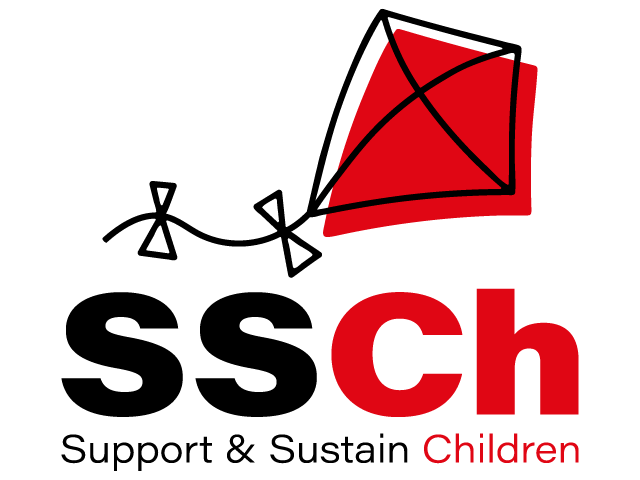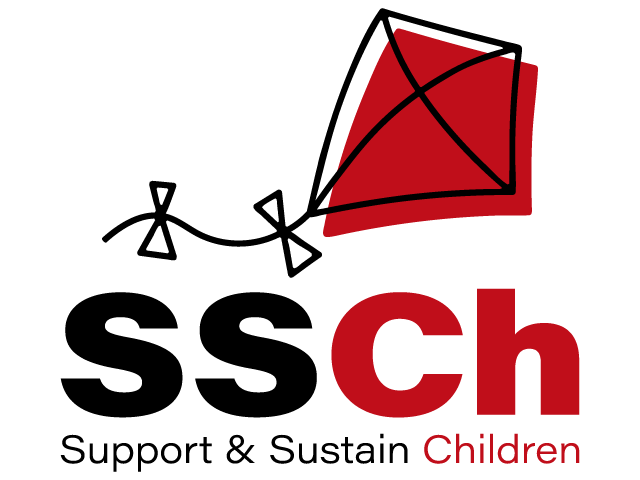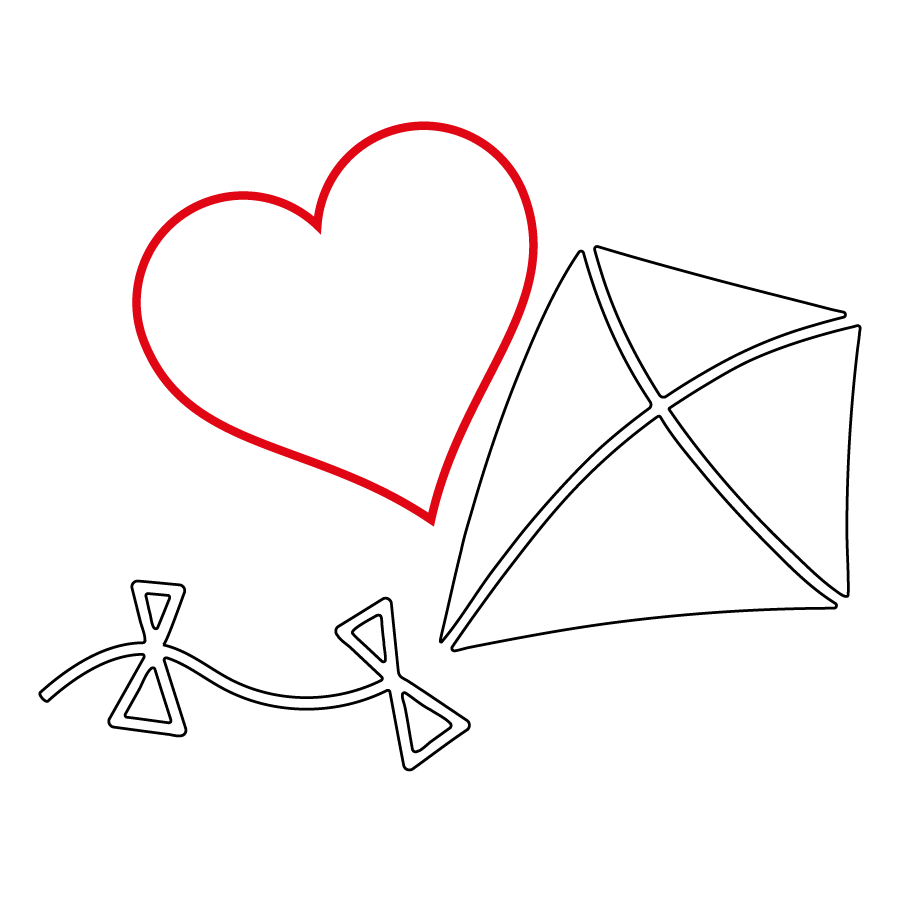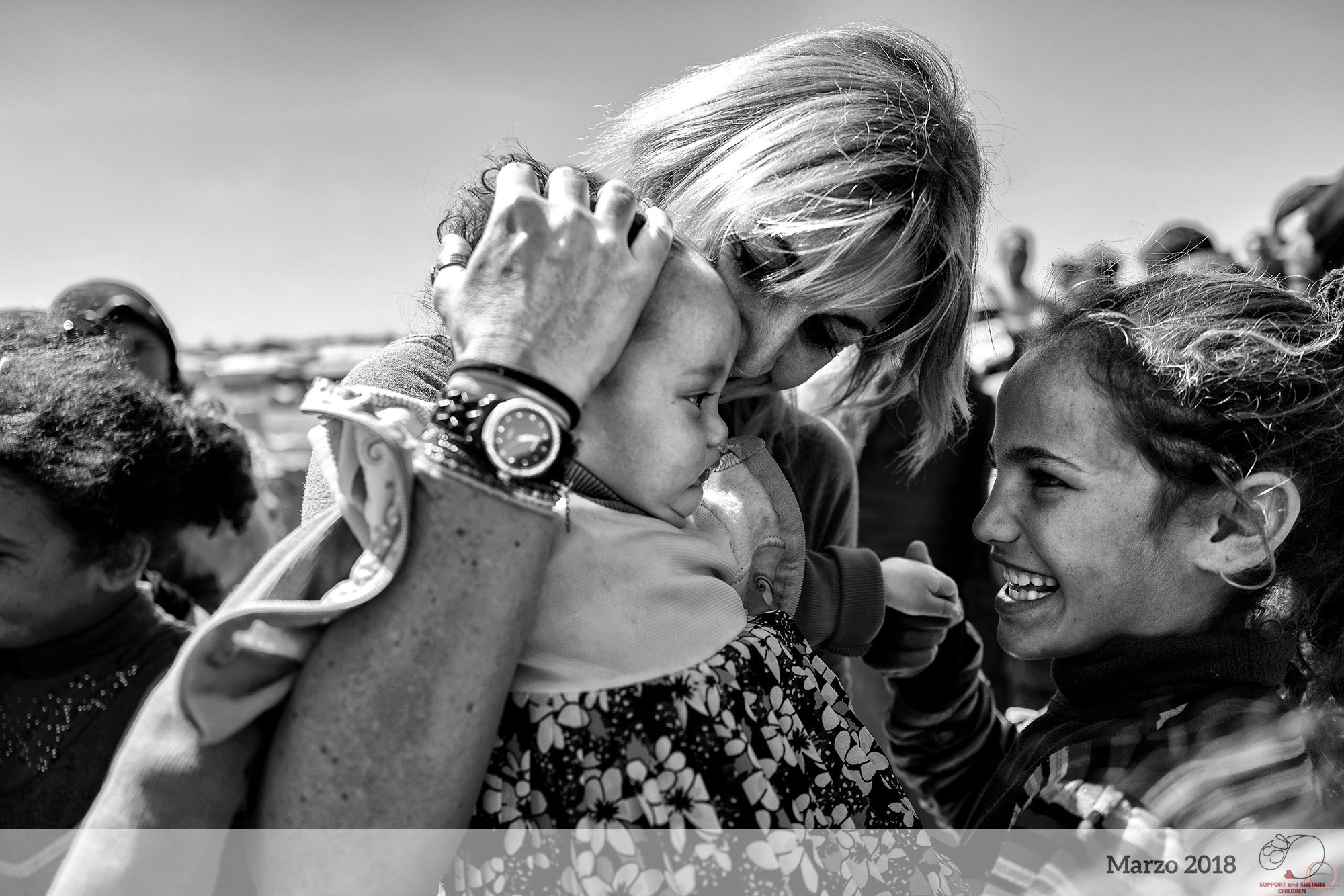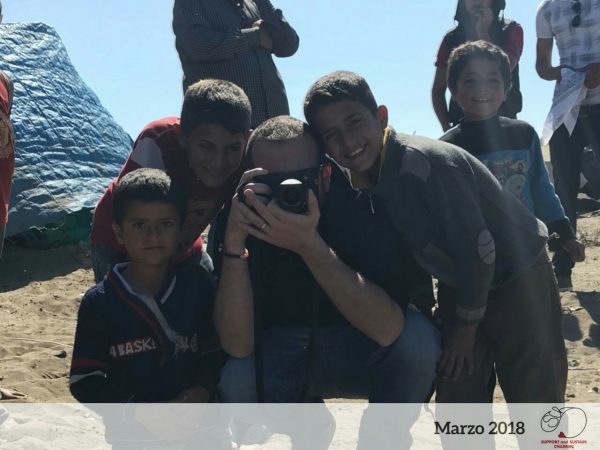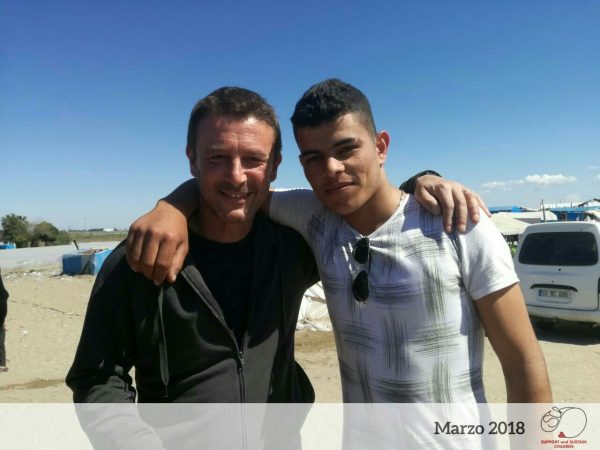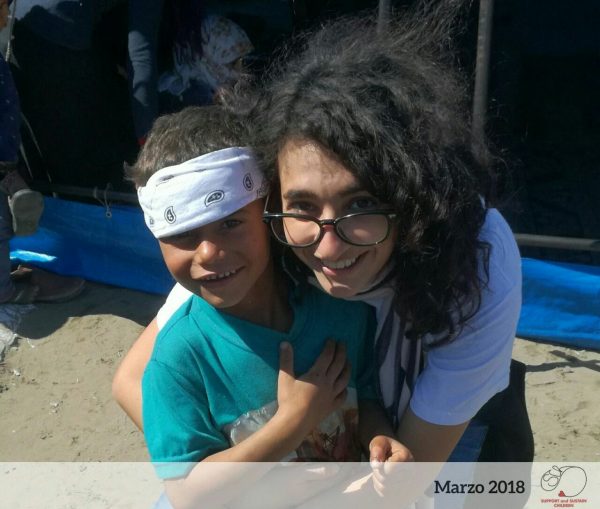March 2018
ON THIS SIDE OF THE BORDER – Travel Diary – by Lidia Boncoraglio
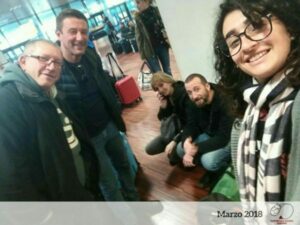
The departure is always a moment full of emotions. The division of weight seems to be like an easy thing but it consists of 120 kilos of food, clothing and games.
Then we must try to plan everything though we are aware that unexpected events are very frequent.
The situation changes quickly often from day to day and therefore our memories are no longer current.
The question of memories is delicate for us. We leave them a sign and they leave us an unforgettable sign. We find this sign in our eyes!
For example we can see the sign in Luigi’s eyes while showing the dress bought for Samia, five years old.
We can see the sign in Arianna’s eyes when asking me: do you remember Fiore? and other children met during these five years. Andrea does not say a word but his photos describe his emotions.
Finally landed in Adana! In total we are 6: Arianna, Marino, Andrea, Matteo, Luigi and me Lidia.
A LIFE BASED ON UNEXPECTED EVENTS
Once outside the Airport we found out that, instead of two booked vans, was actually only one van. We then applied for another van. After many laps we finally arrived at the shop where our interpreter was waiting for us. He is a very generous man and never takes money from us because he says ”you come from Italy to help my people and I cannot accept money from you”. The dealers start to load the vans and Haj Ali car. He and his son Hussein live in the camp and they are now great friends of Arianna. Andrea is helping to load packages and I noticed a boy sitting on a wooden bench. He is alone, dirty and he is looking at us with an extreme sadness. I approached him slowly because I did not want to frighten him. Immediately he pulls out of his pocket a box cutter. I offered him two chocolate bars, sweets and games.
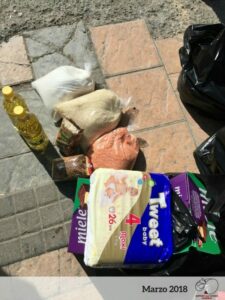
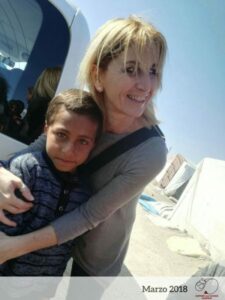
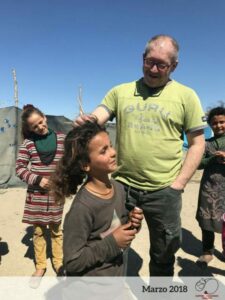
THESE CAMPS CALLED HOME
Just left, direction Karatas. Arianna and Luigi are commenting about the change of the landscape. Very well kept farm fields and perfect infrastructures. When labor is free, it is easy to get good results. From the car we can see some of these slaves. Many are women but also children. Arrived at the camp, everyone ran to us. They recognized us. I know because a group of girls around me began to count in English. Arianna was practically assaulted, Luigi with a child in his arms, Andrea walking hand in hand with a blond child. In this group there is a young girl I met last year. She is no longer the little Turkish girl but she is almost taller than me.
The ground is always sandy and even muddy. The number of plastic curtains has increased from 174 in 2015 to 283 according to the number of families. There is not enough living space and the bathrooms are always holes in the ground surrounded by plastic curtains.
So we started distributing food baskets following a list. This is the most difficult moment because families suffer lack of food. Something went wrong because some families were not on the list.
I love being in the camp. Although hunger, thirst and lack of hygiene make it “the middle of nowhere”.
They have lost everything but nonetheless they struggle and resist.
The distribution is over, now is time for Marino ( pediatrician) to visit his young patients. He worked in Iraq in these months to save children, too.
Meanwhile we went around the large camp looking for lonely children and people with medical needs.
REHYANLI
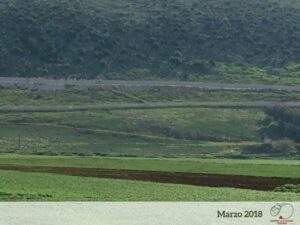
Rehyanli is a border town surrounded by a wall. It strikes to see the great concrete snake that spilts the hill: from one side us, and on the other side the hell. It’s a small town, of run-down houses, some even seem to have been hit by explosions. The inhabitants are more Syrians than Turks, many of them beggars in the street.
Some of them have been living here for years, since the war began, so they put on their activities: small restaurants, small shops, tiny petrol stations , and some well-stocked shops. The sun hits and it is hot. We are terribly thirsty! We have got some bottles of water but we would like to keep them for the kids we are going to meet, mainly for Sanaa, Ali’s wife who lives here with her 5 children.
Our daily programme is very busy. We will be meeting Sanaa, a menber of an association of French doctors, and at last a child who suffers from a serious pathology at limph nodes.
A BROKEN FAMILY
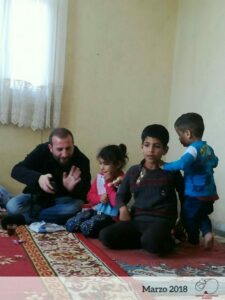
Here the problems start. We had saved on the phone Sanaa’s house position but we find ourselves in front of a cemetery. Some children are playing among old graves, and that makes me shiver without any apparent reason. We call Alì in Italy to ask him where exactly his wife lives. Then start going round Rehyanli far and wide for almost an hour, with no result. We call him back and he sends us a different position, which turns out to be wrong as well.
Ali tells us that one of his children would come to fetch us but there are two cemeteries. Andrea, Matteo, Marino and myself stay here, while Arianna and Luigi move to the other one.
The children start to look at us with curiosity and get closer but when we try to talk with them they run away. We open the car, take some almond bars for us, and offer some to the children. They approach, take them and go back to play, waving their hands.
I start eating my bar and I find it too sweet and disgusting. Soon I feel ashamed as I know that in a few days I will eat properly , while the people here have quite often nothing to eat.
Arianna and Luigi come back with a Syrian interpreter who is a member of an association based in Istanbul. He tells us he is happy to help, and will act as interpreter if we need it. We are immensely grateful.
We need to meet Sanaa to talk to her about the situation caused by her husband . We know that she and her children will never be able to come to Italy to rejoin the family due to her husband behaviour when in Italy .
The story in short is this: when ALi arrived in Italy to have his son Mohammed treated in hospital, the plan was that they would be reunited with the family within two months. But Ali started to behave badly, violently, to drink, to threaten the nurses and anyone he met, nearly reaching the point to lose the custody of Mohammed. He even asked for a prostitute.
I, personally, living in the same city, suffered a lot because of his behavior . We told him that if he hadn’t change attitude, we would have never let his wife and children come to Italy, and he answered he didn’t care!
My pain towards him turned into anger. As for me, but I know, it’s a shared thought, I’d like to kick him out! He claims that everything is due to him, and he does not want to go back to Turkey. He isn’t worried about his 13 year old daughter who is obliged to work , instead of going to school, to support the family. That’s why I hate him and quarrel any time I meet him.
It was difficult to find Sanaa’s home. After almost two hours of wandering around, we discovered that she lives in a village 20 minutes from Rehyanli and decided to meet her tomorrow.
The village is very small , extremely poor, worse than Rehyanli. To say, the roads are not asphalted, some houses do not have either windows, nor the floor. I wander it it is worse to live here or in a camp.
Sanaa, instead, has a beautiful home but empty of furniture. There is only the kitchen, with gas that does not work, since she cannnot afford to pay for it. There is a small gas cylinder to be turned on just when in strict necessity. They just have what they carried away from the tent: three mattresses and some clothes. Nothing else. The children are skinny; Ali Hmoud, the 2-year-old little boy, Samia, the princess of 5, Youssef of 8, Husseina of 10 and Majada of 13. Majada, is no longer the little girl we had met a year ago. She has now become a woman.
She comes next to me and I hug her; she’s the big one, the one who takes care of the family, who brings home bread, the one who hides into her pocket the knife, as a weapon of defence, when she goes out to go to work. Samia , approaches holding the dress and the doll, the presents Luigi brought to her, while Youssef and Ali Hmoud are exchanging their gifts: a little red lorry and a puppet. Husseina shows her gifts to her little friend from the village, and I realize that the girl is a bit disappointed, so I take a little purse out of my bag and give it to her. Majada is wearing her new bracelet , which matches with her veil and the little brooch that holds it firmly.
We must talk to Sanaa about her husband, about the fact that he has been reported to the police and that this inevitably has compromised everything . We don’t want the children to hear the bad news, so I take them out together with the men except the doctor and Luigi.
Majada, though, stays there, and from the way her mother clasps her hand I understand that it is her place. She is only 13 but she is mature for her age. I have noticed that she can write, so I thought that , when tomorrow we will take all of them out for shopping, we will buy exercise books, pens and books.
While Arianna was talking to Sanaa , outside the house we were having fun, we played soccer, captive ball, together with other boys who had joined us.
Inside things are not going well. Sanaa is desperate, but I know she is a strong woman . What I don’t understand is that she goes on saying that she does what her husband wants. They: Ali, the interpreter, Sanaa an Arianna are talking through a video call. Mohammed is improving a lot and is now waiting for the transplant of kidney. We explained the troubles to Ali but he seemed unable to understand, he went on laughing and eating. We told them that the solutions were two: either Ali will leave the child here and go back to Turkey (Mohammed cannot be moved, but, rightly, he does not want to be left alone in Italy) or he meets the requirements for the reunification. The last solution is definitely too optimistic due to the reality of the facts. What we certainly know is what will happen if he still gives signs of violence: he will lose his parental authority. The first solution is sad but realistic, but Ali insists in saying that he will never go back to Turkey. We also must consider that Mohammed neither can return to Turkey, if he wants to live, nor he wants to stay alone in Italy.
Sanaa is desperate, and she bursts into tears. Her despair is so deep that she says that it would rather be better, for all of them, that Mohammed returns and dies.
To save one, means to sacrify 5. The children here are slowly dying. It’s true, apart from Majada, the others go to school but the level of poverty they are subjected to is such, that they are slowly killed from inside
Majada left the house and is back with some tea. I try to comfort her and together with Andrea, Luigi, Matteo and other children living nearby we go on playing
Arianna and Marino are still inside with Sanaa. When they come out they are destroyed. Sanaa is crying clasping her little child in her arms.
We go back into the house. Mohammed is on the phone with his mum, he has just come back from school.
We promised Sanaa to come back tomorrow, so when we say goodbye we know it’s not a goodbye. Despite this she goes on crying in Arianna’s arms.
We were ready to leave when a boy who had been playing with us came holding three large freshly made Arab breads. We thanked and hugged hoping to see him again tomorrow.
While driving back, we discuss Mohammed ‘s situation . Everyone has different ideas, apart from the fact that in case he would be separeted from his family, nobody would object.
To relieve tension, Luigi suggests to take Sanaa and the children out for lunch, tomorrow and then to buy some food. All agree. We receive some donations , plus some money offered by Luigi and we decided that Sanaa will never remain without food.
Light hearted we reached the UOSSM headquarters located exactly in front of the wall.They have their own office on the border of Rehyanli. Outside the building there is the flag of the European Union and that is impressive. Is is a local association of doctors who work in clinics and make medical tests, but non inside the refugee camps. For our purpose they are of no help and we were rather disappointed.
We leave the spot and start looking for the house where the sick child lives. We have got the position but also this time it turns out to be wrong and we find ourselves lost in Rehyanli.
A NEW DAY, THE LAST
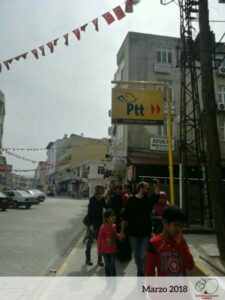
Well, it was not my imagination; the sound was of shots and bombs, Andrea heard them too. Moreover, this morning, while we were going to meet another association of doctors, we saw some tanks on the road.
This time we were lucky, the meeting with this association of doctors went very well, there are real possibilities to collaborate, mainly for Marino, but also for us. For example, giving medical assistance and psychological support to Sanaa, her family and her neighbours .
We’ll see each other again next time.
We went to Sanaa’s home and took her and the children down town and we really had a beautiful day.
Majada was at work, unfortunately, and could not come with us. I have never seen children so happy to enter a supermarket. It was the first time for them.
our way back we met a demonstration of “Grey Wolves” very well equipped and holding different national flags.
At home, Majada was waiting for us. She was crying as she hadn’t been able to come with us. Cried even more when I gave her the presents, because she was overcome by emotion.
We left and when inside the car we looked into each other’s eyes , neither smiling, nor crying, with no word but perfectly aware of the emotions that were crossing our hearts.
We’ve been back for days now. On my bedside table , I have the bandana I had tied around Piccolo Rambo’s face, the one he had given me back after receiving some games and it reminds me of all the children we left there.
The first days are the most difficult, because here everything seems absurd and superficial. We talk about the refugee camps with the people we know but only a few understand us. I feel breathless when I think that at night we keep warm, we eat at least three times a day. We miss all of them, it’s painful to be obliged to leave them there. But it is this sorrow , I think, that allows us to go on with this kind of double life
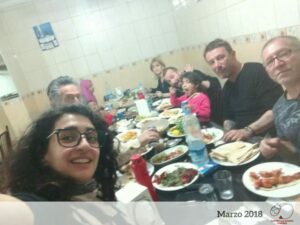
Then we took them out for lunch in a sort of restaurant in Rehyanli. We ordered Syrian food but, there, we realized that they don’t have our idea of meals, when they are hungry they eat a piece of bread and that’s all. They were very happy and mainly the children appreciated the food. Sanaa took some pictures as a souvenir of the day out.
On the way back, I found a stationery shop. I wanted to leave a nice gift to Majada, and bought her a beautiful diary, notebooks and books. My dream is that one day she will go back to school. I know that studying there is not the same as studying in a proper school, but it helps psychologically. I hope she will be able to follow her dream to became a teacher.
our way back we met a demonstration of “Grey Wolves” very well equipped and holding different national flags.
At home, Majada was waiting for us. She was crying as she hadn’t been able to come with us. Cried even more when I gave her the presents, because she was overcome by emotion.
We left and when inside the car we looked into each other’s eyes , neither smiling, nor crying, with no word but perfectly aware of the emotions that were crossing our hearts.
We’ve been back for days now. On my bedside table next to my bed, I have the bandana I had tied around Piccolo Rambo’s face, the one he had given me back after receiving some games and it reminds me of all the children we left there.
The first days are the most difficult, because here everything seems absurd and superficial. We talk about the refugee camps with the people we know but only a few understand us. I feel breathless when I think that we sleep
thought that at night we keep warm, we eat at least three times a day. We miss all of them, it’s painful to be obliged to leave them there.But it is this sorrow , I think, that allows us to go on with this kind of double life.
